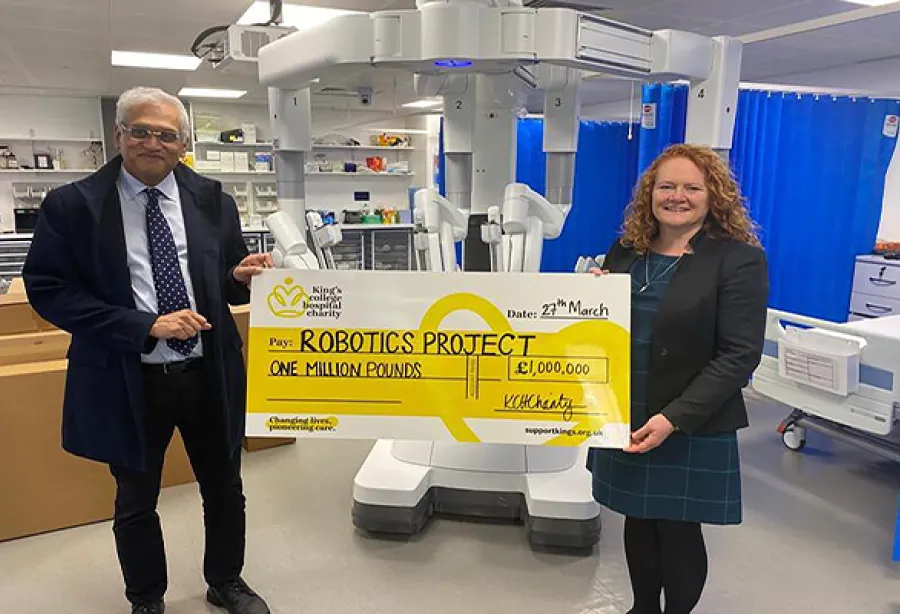King’s Paediatric Liver Centre provides a highly specialised service to children with life-threatening liver problems. Every year, the Centre assesses and treats about 3,000 children diagnosed with life-changing liver disease and carries out approximately 50 paediatric liver transplants in children as young as five days old.
In order to improve the experience of treatment and achieve better outcomes for these children, we were proud to fund a new piece of equipment – an ultrasound scanner with elastography functionality.
Requiring minimal preparation, ultrasound examinations are a non-invasive, painless and quick way to monitor young patients. Previously, the Centre was unable to meet the demand for paediatric ultrasounds and some patients had to be transferred to a unit in a different part of the hospital, which could take up to 40 minutes – a stressful journey for the children and a strain on resources for busy staff.
We knew it was vital that the wards should have their own scanner, which would allow for crucial daily monitoring in child-friendly surroundings. Unlike a normal ultrasound machine, this new ultrasound scanner provides detailed images of the veins and arteries in the body and the blood flow within them. It provides critical information that enables clinicians to identify problems as soon as they arise, making sure they can intervene early to achieve the best possible outcomes for young transplant patients.
The new scanner is used daily on the wards to closely monitor the progress of children and young people who have had a liver transplant. It is in constant use for bedside scans, ultrasound-guided biopsies, as well as other procedures like difficult cannulation and drain insertions. The new scanner has significantly reduced the need for children to leave the ward, increased efficiency for busy staff, and ensured that any problems post-transplant can be picked up and dealt with as soon as they arise.
